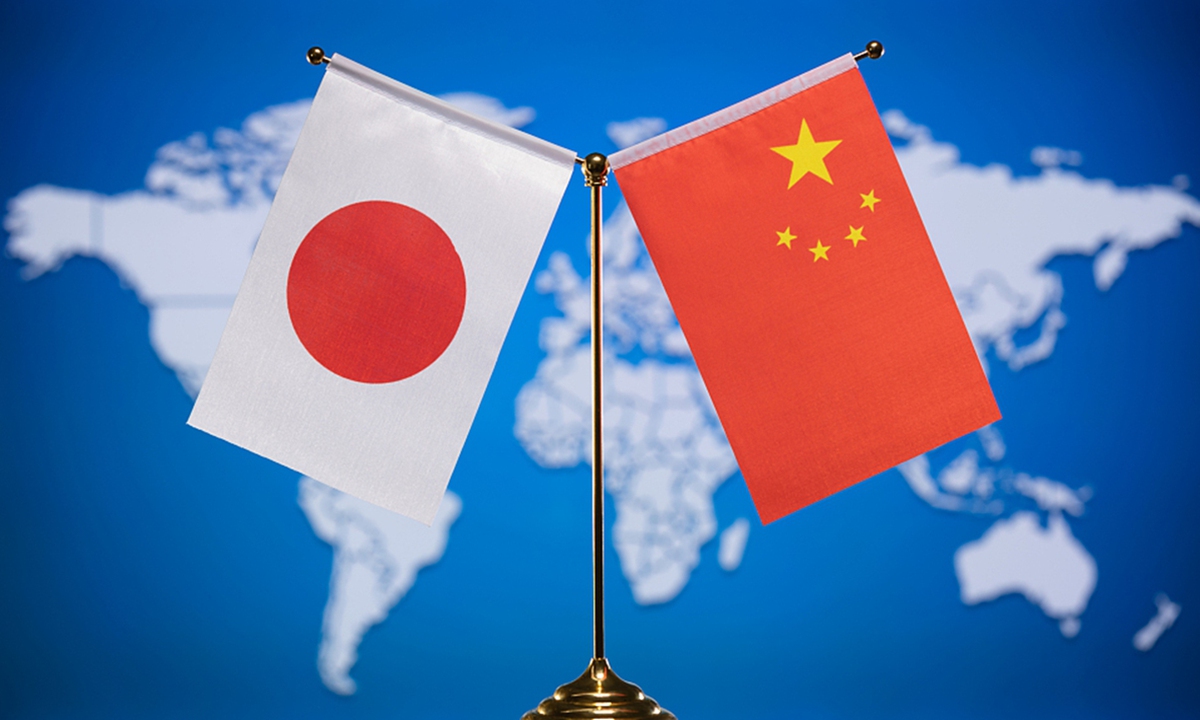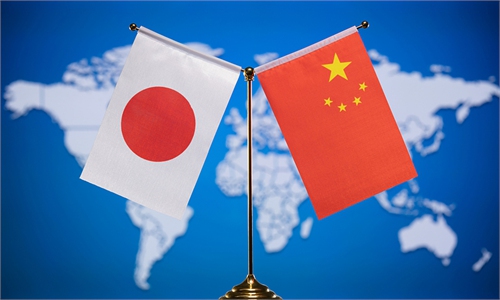
Photo: VCG
This year marks the 45th anniversary of the signing of the Treaty of Peace and Friendship between Japan and China (Treaty). On August 12, 1978, both sides signed the Treaty in Beijing, and on October 23 of the same year, they exchanged instruments of ratification in Tokyo, officially putting the Treaty into effect.
From the China-Japan Joint Statement inked in 1972 when diplomatic relations were restored, to the signing of the Treaty in 1978, the China-Japan Joint Declaration of 1998, and the joint statement on advancing strategic and mutually-beneficial relations in a comprehensive way that was signed in 2008, China-Japanese relations have continually developed along the track set by these four political documents. The Treaty helped upgrade bilateral relations to an "iron bridge" from a "hanging bridge" when the two countries just formed diplomatic relations. Based on these four legally binding political documents, there is a legal basis for improving China-Japan relations.
However, in recent years, China-Japan relations have faced challenges over the historical disputes and territorial conflicts, such as the Diaoyu Islands dispute. Japan has also repeatedly crossed the line in terms of the Taiwan question, interfering in China's internal affairs, and has followed the US' policy toward Taiwan island. The relationship between China and Japan is currently going through a complex development process. It is important to emphasize that whenever issues arise in China-Japan relations, it is precisely Japan's deviation from the track set by the four political documents that leads to these problems, Lü Yaodong, deputy director of the Institute of Japanese Studies, Chinese Academy of Social Sciences, told the Global Times.
The US-Japan alliance is a product of the Cold War era. After the end of the Cold War, this structure is supposed to have gradually faded. However, Japan is currently strengthening the US-Japan alliance and trying to depict it as a factor of peace and stability in the history of East Asia. In fact, on the contrary, the US-Japan alliance has played a disruptive role in peace and stability in East Asia. Japan and the US also propagate the idea of China threat, which undoubtedly further undermines regional peace and stability, creating tension.
By the end of 2022, Japan introduced three documents on its security and defense policies, explicitly positioning China as "an unprecedented and largest strategic challenge," directly undermining bilateral relations and severely damaging peace and stability in East Asia, said Lü Yaodong.
On October 19, Wang Yi made a five-point proposal on growing China-Japan relations at the 19th Beijing-Tokyo Forum. First, act upon the pledge and deliver on the promise to consolidate the political foundation of relations between the two countries. Second, expand cooperation to realize higher-level mutual benefits and win-win results. Third, properly manage differences to keep to the right direction of relations between the two countries. Fourth, reinvigorate friendship to improve the public support for relations between the two countries. Fifth, strengthen coordination to safeguard regional peace and stability. As important countries in the region and the world at large, China and Japan should safeguard solidarity and cooperation in Asia, which is in the common interests of Asian countries, especially East Asian countries.
Forty-five years ago, the older generation of leaders and statesmen from both countries made a strategic decision to sign the Treaty, which has charted the course for peaceful coexistence and everlasting friendship between the two neighbors in legal terms with an emphasis on opposing hegemonism. Forty-five years later, Japan should continue to respect and adhere to the political documents established in a legal form, cherishing the spirit of the documents since the establishment of diplomatic relations. Although the times are changing, the spirit of the four political documents should remain unchanged. Only by adhering to this spirit can China-Japanese relations continue to develop in a healthy manner.

